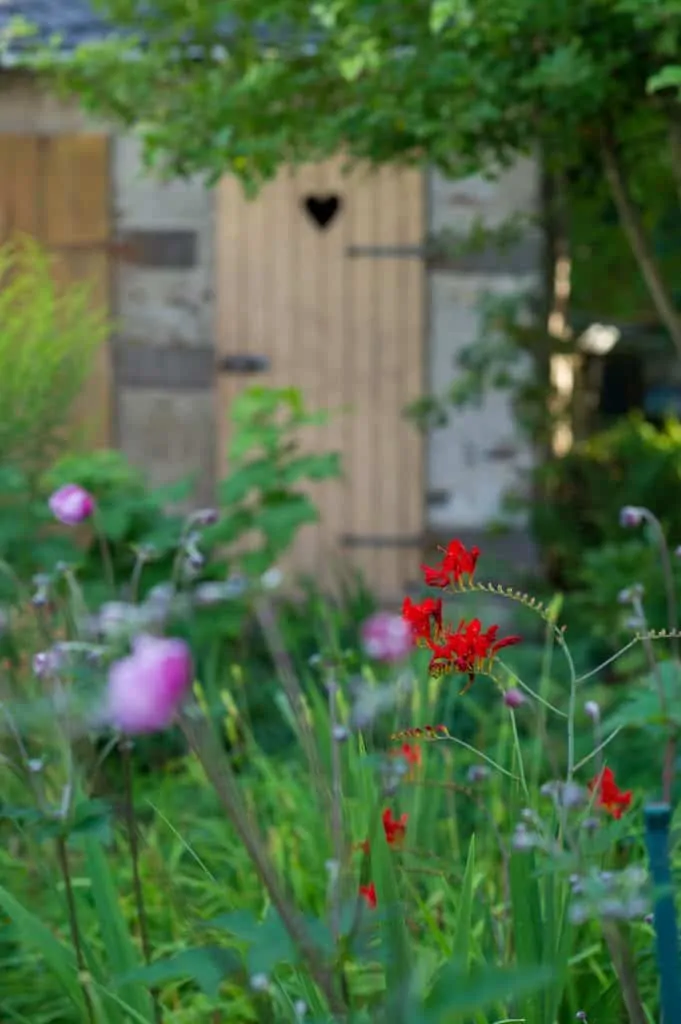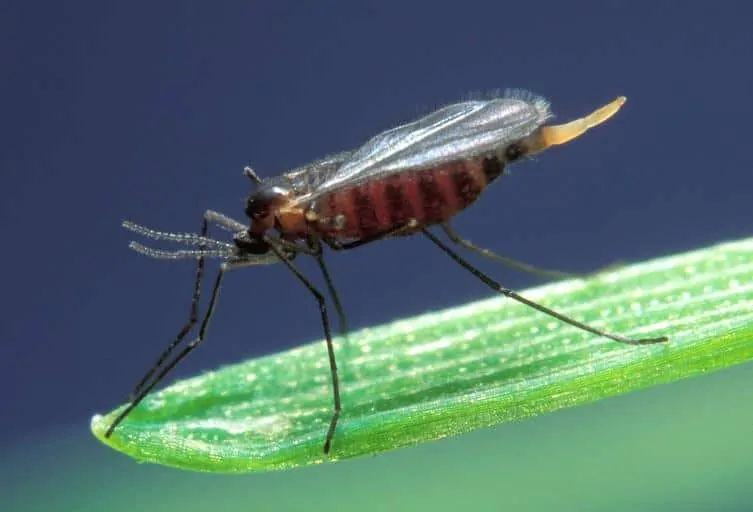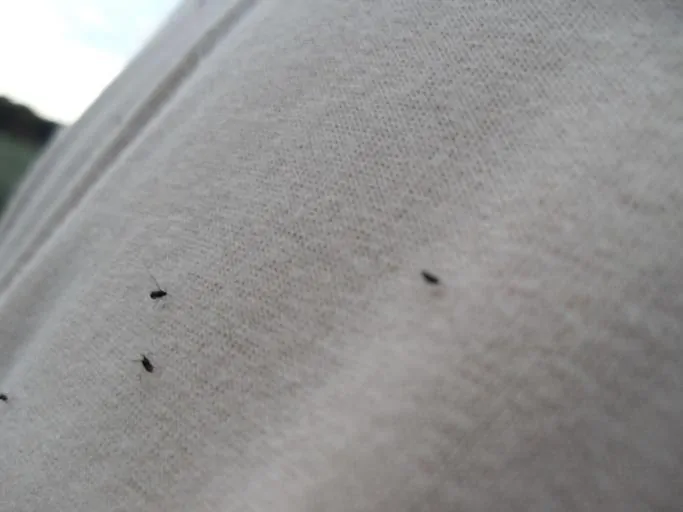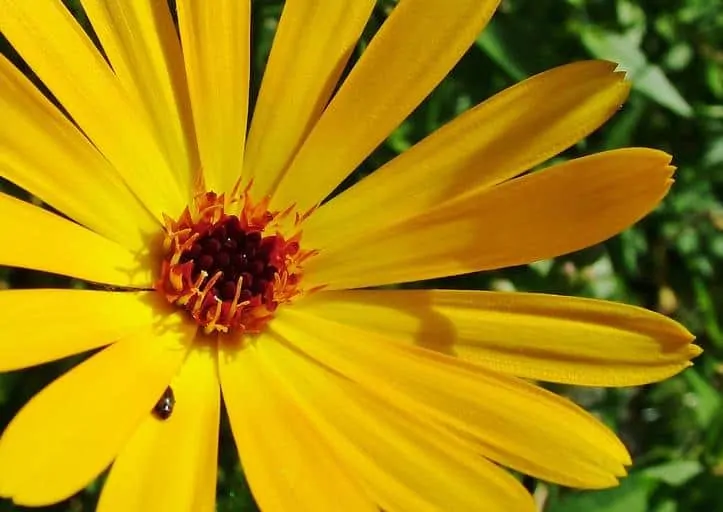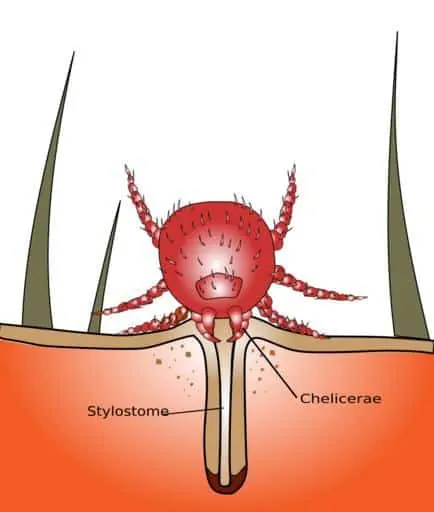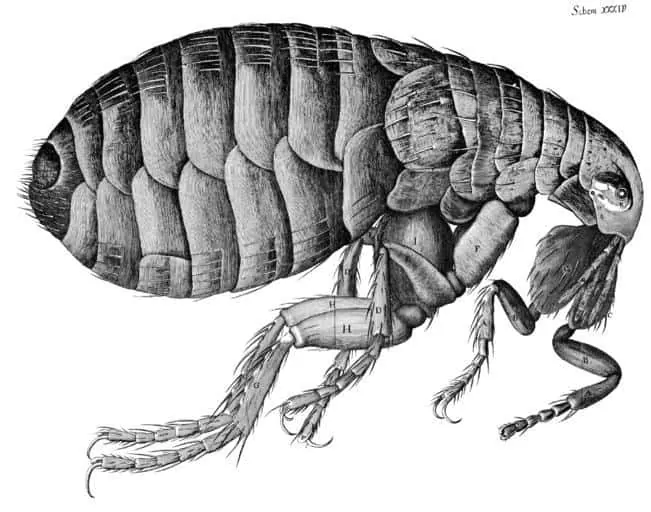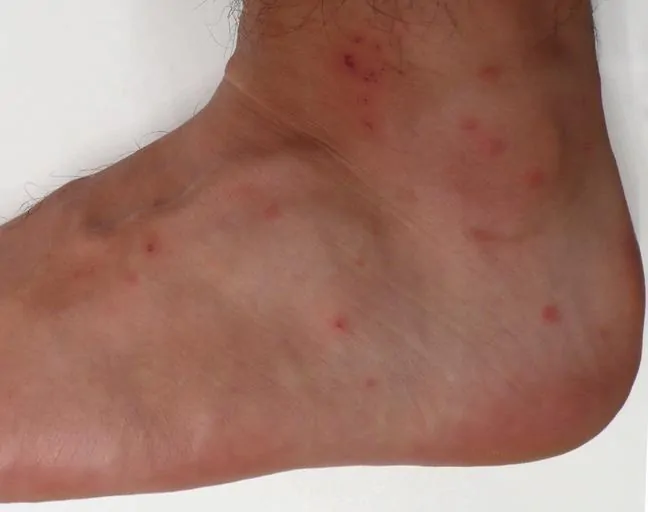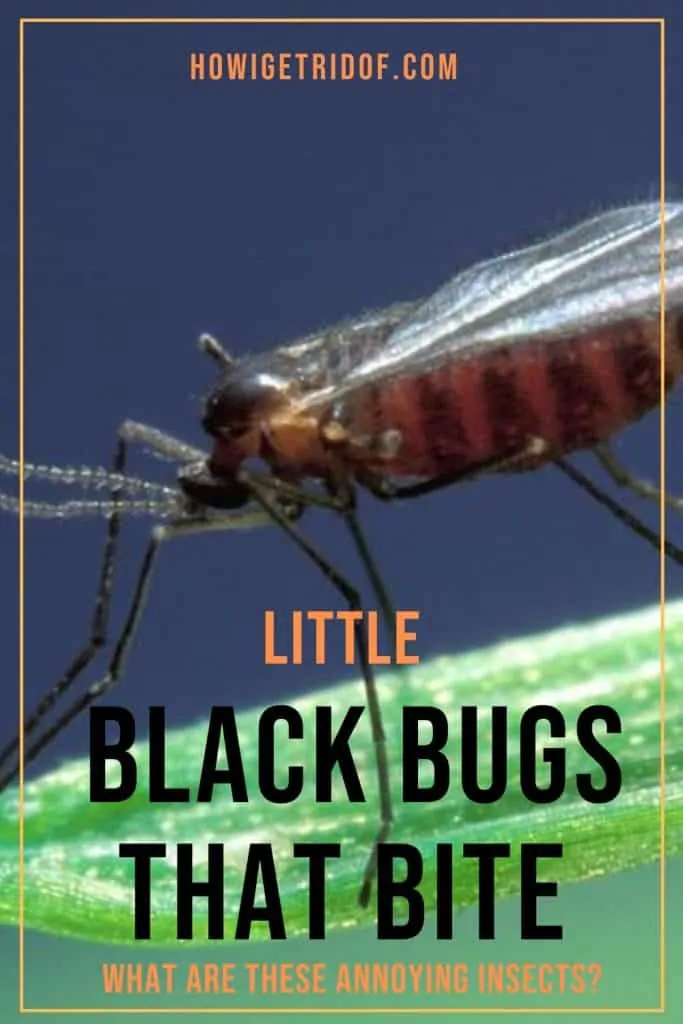It’s certainly no fun when you’re trying to enjoy the outdoors alongside little black bugs that bite. But what exactly are these annoying pests?
Small, hardly noticeable, and with a big bite, these little bugs are almost worse than mosquitoes. What’s more, it seems like there’s been an influx of these pests the last couple seasons.
This is bad news for anyone who enjoys spending time outside, especially as the weather warms up. So, how do you repel these pests?
That’s what we’re here to find out. But before we get into methods you can use to control and reduce little black bugs that bite, let’s first find out what they are.
Keep reading.
Contents
Little Black Bugs That Bite – What In The Heck Are They?
Though they are small, these little black bugs pack a big bite.
How can something so small cause such a big sting? That’s what so many people are wondering when it comes to these little black bugs. But with thousands of species of insects worldwide, and different methods of control for each, how do you know how to tackle what you’re up against?
Well, first things first – it helps to narrow it down.
In the United States, there are several small black bugs that bite people and pets, and they’re attracted to your yard and garden. It’s most likely you’re dealing with one of these pests, which is great news when it comes to methods for pest control so you can enjoy your yard again.
The Most Common Black Bugs that Bite Include:
- Biting Midges/No See Ums
- Gnats
- Chiggers
- Fleas
- And Minute Pirate Bugs
Due to their size and appearance, many of the above little black bugs that bite are confused for one another. Many also go by similar names, belong to the same family, or share a similar origin.
And while you can repel many of the above bugs using routine bug spray and pest control methods, you will likely be able to better prevent them once you understand what has attracted them in the first place.
With that in mind, let’s talk more about little black bugs that bite and why you’ve encountered them.
How Did I Get These Little Black Bugs?
Most little black biting bugs are attracted not only to people, but also the nectar from flowers. Some even eat other, smaller insects like aphids.
Like mosquitoes, many of the little black bugs that bite on our above list are attracted to stagnant water sources. Others are attracted to overgrown grass, flowers, trees and pets. Like mosquitoes, some of these pests are even attracted to the carbon dioxide you breathe or the sweat you produce.
Some other common attractants for small biting bugs include:
- Bird baths
- Tires
- Overturned buckets
- Over-watered lawns
- Over-watered flower pots or flower beds
- Backyard ponds
- Many types of ornamental flowers
- Trees
- Overgrown grasses
- Debris
- Dead trees
- Pet waste
- Animal waste
- Garbage bins
- Fruit from fruit trees
- And even wild animals
We will talk more about how to reduce attractants in your yard to keep biting bugs at bay, but for now let’s talk more about the specific insects you might be dealing with, and then go over some products you can use to keep them from coming around.
The Biting Midge / The No See Um
A midge belongs to the fly family and is most attracted to stagnant water sources.
Scientific Name: Ceratopogonidae
Size: 1-3 mm
Appearance: Biting midges have a dark brown body with two clear wings. They have six legs and two antennas.
Diet: Nectar and blood from mammals, birds, amphibians and reptiles.
Lifespan: Between two weeks to one year
Overview:
There are over 5,000 different species of biting midges (AKA No See Ums). These pests are small and belong in the fly family. True to their family origin, midges resemble very small flies and, just like mosquitoes, who also belong to the fly family, only female midges bite people and animals. Both female and male midges also feed on nectar from flowers, making them beneficial pollinators. However, upon mating, the female midge needs iron-rich blood in her diet in order to produce healthy offspring. She often attacks humans and can leave a painful bite. However, midges are not known to transmit any diseases or illnesses to people.
Female midges lay their eggs in fresh and stagnant water. They will also lay eggs in moist soil or beneath tree bark and the process begins again.
Gnats
Only female gnats can bite, but since they swarm in large numbers, their bites can be numerous.
Scientific Name: Diptera
Size: 1/8th to 1/4th of an inch
Appearance: Black bodies, clear wings, and long legs in comparison with their bodies.
Diet: Plant nectar, overly-ripe fruits, and blood from mammals, birds, reptiles, and amphibians.
Lifespan: 7 days
Overview:
Not all gnats bite, but the ones that do deliver a painful sting that can leave a red, itchy mark on the skin. Luckily, biting gnats are harmless to people and pets. Still, they’re incredibly annoying and tend to swarm in massive clouds.
What are these little black bugs that bite attracted to? Like many pests, gnats are attracted to stagnant water sources. Only the females bite, while male gnats feed primarily on plant nectar.
The most common species of gnats include fungus gnats, drain flies and fruit flies. Other types of gnats are also known as the common house mosquito.
You can help repel gnats by removing excess water sources in and around your home, and by collecting fallen fruit from fruit trees outside.
Minute Pirate Bugs
Also called Insidious Flower Bugs, the Pirate bug is a small bug with a nasty bite.
Scientific Name: Orius Insidiosus
Size: 2 – 5 Millimeters
Appearance: Black or grey with elongated bodies, six legs, smooth antenna, and clear wings.
Diet: Other insects, insect larva and eggs, mites, lice, nectar and sap
Lifespan: 35 days
Overview:
Also known as the insidious flower bug, the minute pirate bug is probably the least well known pests on our list of little black bugs that bite. That said, it may have been the bug you were searching for you when you looked into this topic.
The minute pirate bug has riled up media outlets and pest experts alike as their population rises in the United States. These tiny bugs deliver an incredibly painful bite in spite of their diminutive size, especially during fall, when they stray from flowers and fields in search of dwindling food.
However, unlike many other biting pests, the minute pirate bug does not feed on blood. So why do they bite? Well, experts don’t really know.
Still, try and remember that these predatory insects are actually beneficial bugs that serve as a natural form of pest control. They help eliminate problematic garden pests like mites and larva, and help gardens to flourish. Plus, they’re usually gone by winter. Best of all, they aren’t dangerous to humans or animals as they do not transmit diseases. In fact, the worst they’ll leave behind is an itchy welt.
The below video goes into more detail about minute pirate bugs.
<iframe width=”560″ height=”315″ src=”https://www.youtube.com/embed/Y6qDRPo_xvQ” frameborder=”0″ allow=”accelerometer; autoplay; clipboard-write; encrypted-media; gyroscope; picture-in-picture” allowfullscreen></iframe>
Chiggers
Chiggers are a type of mite, and they can leave a nasty bite.
Scientific Name: Trombiculidae
Size: 1/60th of an inch
Appearance: Small and red, wingless, and six legs. (Once mature, they have eight legs)
Diet: Liquified skin tissue
Lifespan: 50 – 70 Days
Overview:
Chiggers are perhaps one of the most malicious pests on this list because they are so difficult to see. In spite of their red coloring, they are so small they can often seem dark brown or black. They can also be a yellow color, especially after they feed.
These pests are mites in the arachnid family. They feed by eating liquified tissue on animals and people upon biting. Their bites can be quite irritating, leaving behind painful red bumps and rashes.
However, their bite is not initially painful. In fact, a reaction to these bites usually doesn’t occur until a few hours after the initial contact, making it difficult for some to know exactly what bit them.
Chiggers live in every country and are found widely throughout the United States. They like moist, grassy fields, lawns, gardens and forests, and are easy to pick up when gardening or simply going for a stroll or hike. Luckily, they are not vectors of disease, though the rashes from their bites can be painful or itchy and last for several days.
Luckily, you can easily control chiggers using proper pest control methods for little black bugs that bite, which we’ll discuss further down.
Fleas
Fleas are some of the most hated biting parasites. They can attack both pets and people.
Scientific Name: Siphonaptera
Size: 0.1 to 0.32 cm
Appearance: Black with six legs, wingless, and the back legs are significantly longer than their other four legs.
Diet: Blood from a mammal host
Lifespan: 3 months
Overview:
You likely already know plenty about fleas, especially if you have a dog or cat in the home. Flea protection is part of being a pet parent, but did you know fleas can also attach to a human host? Fleas have even been known to get into our homes and infest carpets, bedding, curtains, and furniture.
Not only are fleas nasty little parasites, they are also some of the worst little black bugs that bite. Their bites are itchy, leave behind red bumps or welts, and they can spread serious diseases like flea-borne typhus to both people and animals.
Fleas are most common in areas where wild animals frequent, like fields, forests, and greenbelts, though they are also often found in suburban and urban areas.
Though very small, you can see fleas with the naked eye and take measures to protect yourself from these pests using a few of the below methods.
Tips For How To Get Rid of Little Black Bugs That Bite
It can be difficult to know what bit you, especially if the pest is incredibly small. But it’s important to identify it so you can repel it properly.
Now that we’ve talked a bit more about the most common little black bugs that bite, let’s learn about different methods you can use to protect yourself against them.
Many of the above biting pests are most active during warmer months and dissipate in the fall, making it a bit easier for you to prepare for their arrival. However, if you live in warmer regions in the United States, you may be more susceptible to dealing with these biting pests all year round.
Either way, there are ways you can keep yourself free of annoying bites. Take a look.
Identify the Pest You Are Dealing With
Using the above descriptions, try and identify which type of insect you’re dealing with. This will help you pinpoint their range of activity and help you to remove any potential attractants from around your home and property. It will also help you decide if you wish to keep the beneficial bugs around, or if you are ready to use an insecticide or pest control method to get rid of them for good.
Place Small Sticky Traps In High Activity Areas
Some of the above listed biting bugs don’t have wings, but others do. To get a good idea of which type of pest you’re dealing with, you can place sticky traps in high activity areas. This can include along your lawn, in your garden, and even along the perimeter of your home near windows or excess water sources, (think birdbaths, backyard ponds, etc).
Because these bugs are small, look specifically for smaller sticky traps. Fruit fly traps can work well for catching and controlling gnats, midges and minute pirate bugs.
Purchase A Personal Bug Spray
Common personal insect repellents that contain either picaridin or DEET can help repel little black bugs that bite when you’re out and about.
If you prefer to go the more natural route for personal bug spray, products that contain essential oils like peppermint, cedarwood oil, and eucalyptus oil have also been found an effective repellent for biting bugs.
Use Home Remedies
Some people prefer to use do it yourself pest control methods, and when it comes to little black bugs that bite, this method can be a quick go-to. Many home remedies require the use of common household ingredients you likely already have in your home, and we’ll discuss a few DIY bug repellent recipes you can make quickly and cheaply further down.
Use An Indoor and Outdoor Insecticide
Many of our listed pests can get inside your home, so try finding an insecticide that is designed for both indoor and outdoor use. There are plenty of insecticides that are made to do just that, and you have the option of choosing chemical insecticides or natural insecticides depending on your lifestyle and preference.
Protect Pets With Flea and Tick Prevention Year-Round
Fleas are some of the most common little black bugs that bite, and they are also some of the most dangerous. While they can bite humans, they typically prefer animal hosts like dogs, cats and wild animals.
You can protect yourself, your home and your loved ones by simultaneously protecting your pets using a quality flea and tick repellent. To find the repellent that is right for your dog or cat, speak with your veterinarian or a trusted pet expert.
Best Products For How To Get Rid Of Little Black Bugs That Bite
Protecting yourself with the proper products can greatly reduce the bug bites you receive.
If you’re not sure which products would be best for you when it comes to protecting your yard, home, and loved ones from these little black bugs that bite, don’t worry. We have listed some of our favorite products below.
Wondercide Pest Control Spray
No products found.
Wondercide Pest Control Spray is a great pest control agent for organic gardeners or for those with children or pets in the home. This spray uses all natural ingredients like essential oils to repel little black bugs that bite, as well as other pests like spiders, ticks, ants, roaches and more.
This spray is designed to be sprayed in your lawn and garden, as well as along the perimeter of your home. It is safe enough to spray directly on garden plants and there is no wait time for children and pets upon application.
Deep Woods OFF! Bug Spray
No products found.
If you’re dealing with particularly pesky little black bugs that bite, you might consider arming yourself with a personal bug spray that contains DEET. The above bug spray OFF! Is a popular personal bug spray that has been on the market for years.
It uses the active ingredient DEET, and is specifically designed to protect you from chiggers, fleas, gnats, mosquitoes, and other little black bugs that bite.
Compare-N-Save Indoor and Outdoor Insect Spray
No products found.
Last, we have this indoor/outdoor insecticide by Compare-N-Save. It uses the active ingredient bifenthrin to control little bugs that bite both inside and outside of the home. Specifically, it is ideal for protecting against midges, biting mites, and a number of biting pests in the fly family.
You can order it in two sizes depending on your needs, and it comes in a concentrated formula that must be diluted before being applied. Because this is a chemical insecticide, it should be used only as directed and kept out of reach of children and pets.
How To Get Rid Of Little Black Bugs That Bite Using Home Remedies
Essential oils like peppermint oil and eucalyptus oil can help repel biting bugs.
As we mentioned briefly above, there are several DIY recipes you can make right there at home to protect yourself and your loved ones from little black bugs that bite. Let’s take a look at some of the most popular.
Essential Oils
Essential oils have long been used as a form of natural pest control, and can work in repelling not only biting bugs, but also spiders, rodents, and even reptiles. Some of the best essential oils you can use to repel problematic pests include:
- Eucalyptus
- Peppermint
- Lavender
- Lemongrass
- Citronella
You can make your own essential oil pest repellent spray by following the below instructions:
Ingredients:
- 10 – 20 drops of the essential oil of your choice
- 2 cups of water
- 1 spray bottle
Directions:
Combine the above ingredients into a spray bottle and shake the solution to mix it thoroughly. You can use this spray both outdoors and indoors to repel pests, and even use it on yourself as a personal pest repellent.
However, before using essential oil sprays on exposed skin, try it on a small patch of skin first to ensure it doesn’t cause irritation. Also make sure the essential oils are properly diluted, and refrain from using essential oils on pets without speaking with a trusted veterinarian.
We should also note that some essential oils can harm ornamental plants. Be sure to do some research before spraying essential oil combinations directly on plant life.
Along with making an essential oil spray for little black bugs that bite, you can make an essential oil bug repellent using cotton balls:
Ingredients:
- Several cotton balls
- The essential oil of your choice
Directions:
Saturate as many cotton balls as you desire in the essential oils of your choice and place them around you when you’re gardening or enjoying the backyard. You can also place saturated cotton balls around entry and exit points of your home including window ledges and in doorways.
Replace any sitting cotton balls with freshly soaked cotton balls every two to three days to ensure they are effective.
Grow Pest-Repellent Plants
Some of the above listed little black bugs that bite won’t be deterred by repellents. (This includes pests like the minute pirate bug, who randomly land on and bite people as opposed to seeking people out for food).
And because these pests are most attracted to plants, you can repel them by growing pest-repellent plants they don’t like. Some of the best plants to grow that will repel common pests include:
- Mint
- Chrysanthemums
- Marigolds
- Baisl
- Lavender
- Citronella Grass
- Petunias
- Chives
- Rosemary
- And Garlic
How To Prevent LIttle Black Bugs That Bite
You can enjoy your summers again by following a few preventative measures for black biting bugs.
Now that you know how to protect yourself from those little black bugs that bite, let’s talk about how to prevent them from coming back around next season. Remember, most of these pests are common during spring, summer, and early fall. This gives you a few months to prepare by following the below steps.
Keep Up With Landscaping
Many of the little black bugs that bite on our list are attracted to overgrown grasses and excess water sources. Others are attracted to a buildup of outdoor debris. You can help reduce the number of little black bugs that bite on your property by keeping up with routine landscaping and by keeping your yard and garden tidy.
Mow your lawn and keep the perimeter of your yard trimmed and clean. Use companion planting, like we listed above, to further prevent little black bugs that bite and other annoying pests.
Remove Excess Water Sources In and Around Your Home
Excess water is one of the biggest attractants for those little black bugs that bite. Excess water often leads to an ideal breeding ground for these pests, as well as provides them with an abundance of food.
Remove excess water sources including kiddie pools, dog water bowls, unused bird baths, and buckets. Also try and refrain from overwatering your garden, lawn, and flower beds.
Invite the Predators
Little black bugs that bite have lots of predators. You can help deter them by inviting those predators to your home. Some of the best predators for these pests include:
Line Your Perimeter With Cedar Mulch
Cedar mulch is an excellent deterrent for crawling little black bugs that bite like fleas. It can also help repel other pests like ticks, roaches, spiders and even rodents. Cedar mulch also smells lovely and is easy to find at most gardening stores.
Protect Your Pets
Don’t skip flea and tick treatments with your pets. Remember, fleas are some of the more dangerous little black bugs that bite on our list, and they are most commonly contracted after they infest dogs and cats, who bring them into the home.
Harvest Ripe Fruits and Veggies From Trees and Gardens
Ripe fruits and vegetables not only attract little black bugs that bite, but also the wild animal that can bring them into your yard. This is especially true for pests like gnats and fleas.
You can keep these pests at bay by harvesting edibles as they become ripe, and throwing any overly ripe edibles away instead of leaving them to decay in your lawn.
Use A Routine Pest Control Year-Round
Not only is it wise to use pest control to repel little black bugs that bite, but it’s also a good idea to repel the pests that bring them like wild animals.
Remember, you have the option of choosing between chemical and natural pest repellent options or home remedies. With that in mind, there is no reason why you shouldn’t be able conquer these little black bugs that bite when following the right steps.
We hope this has been a helpful guide on how to manage these annoying bugs, and that you feel confident in your chosen method of control.
Now we want to hear from you. Which of the little black bugs that bite listed above have you dealt with most? Leave us your thoughts in the comment section below.
Thanks for reading!

Jack founded our blog after two decades of working in the pest control industry. His vast experience dealing with a wide array of pests allows him to diagnose issues quickly and get to the heart of pest problems quickly and effectively. He has serviced more than 2,000 homes over his career and there is hardly any pest situation that he has not seen before.

